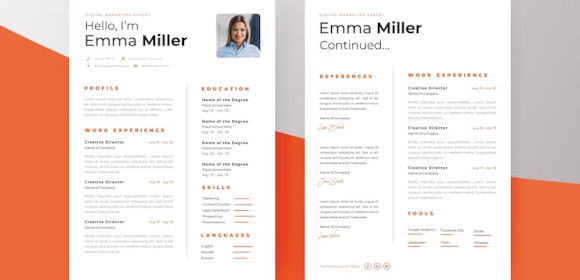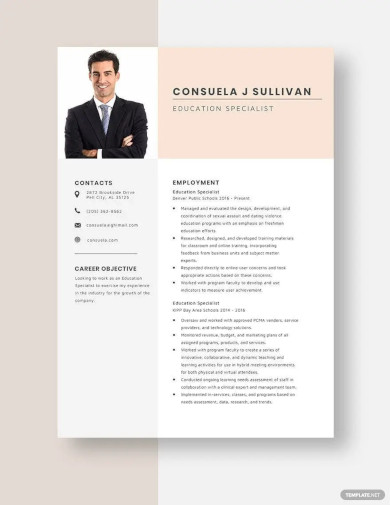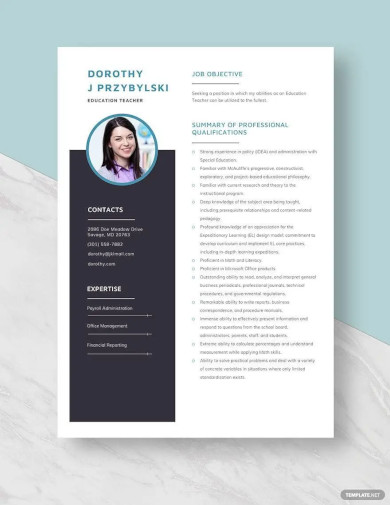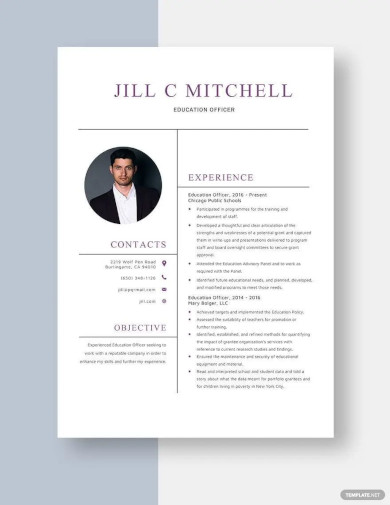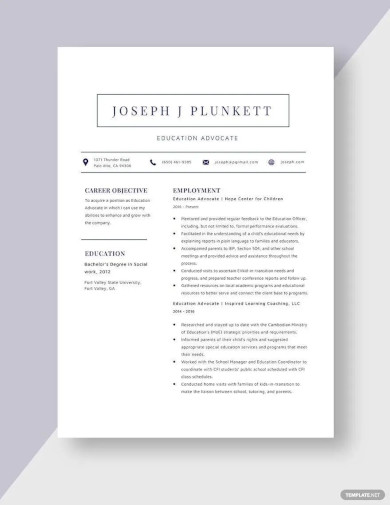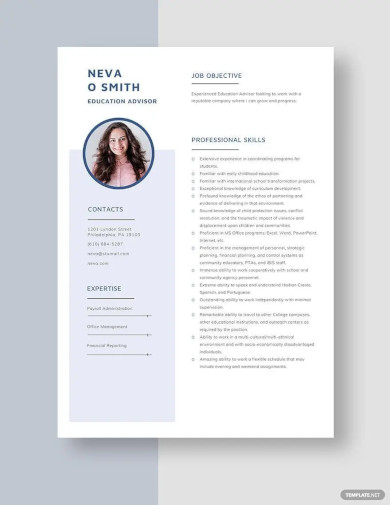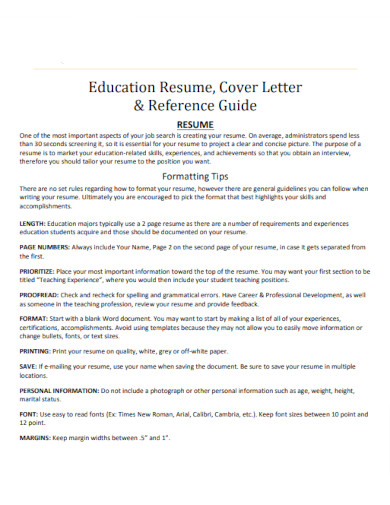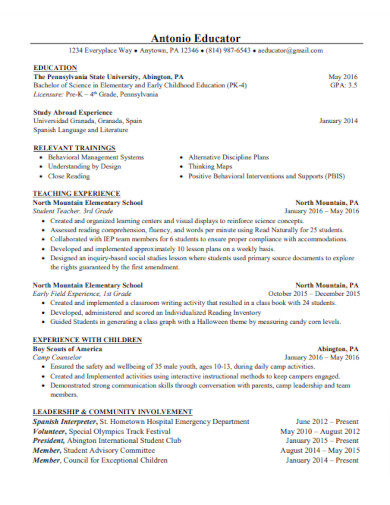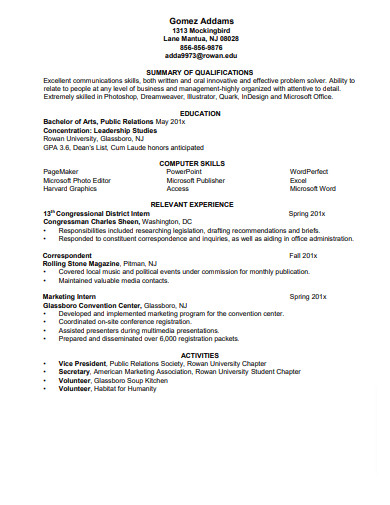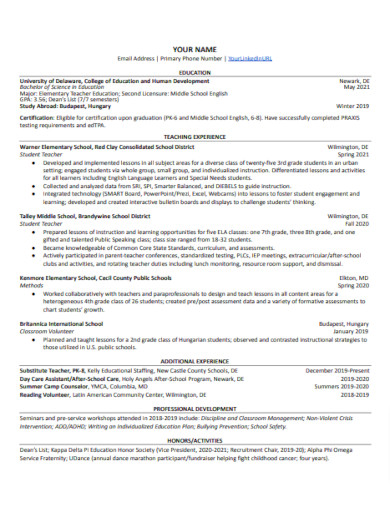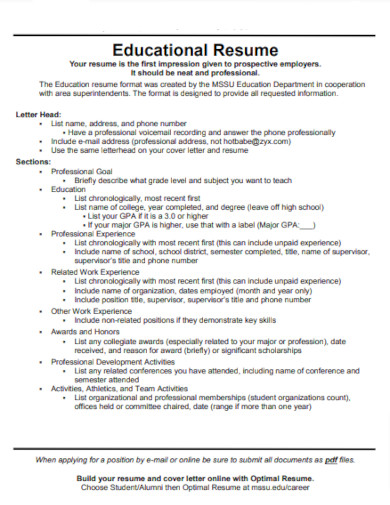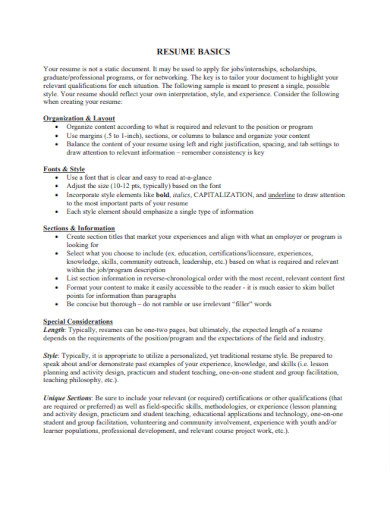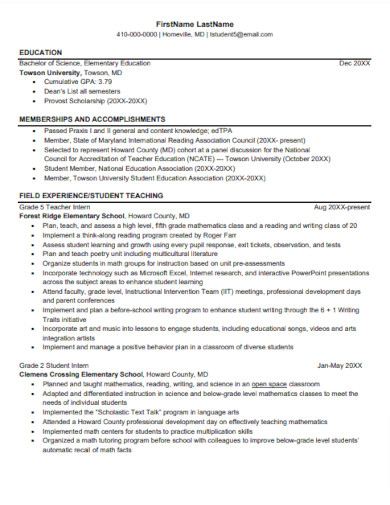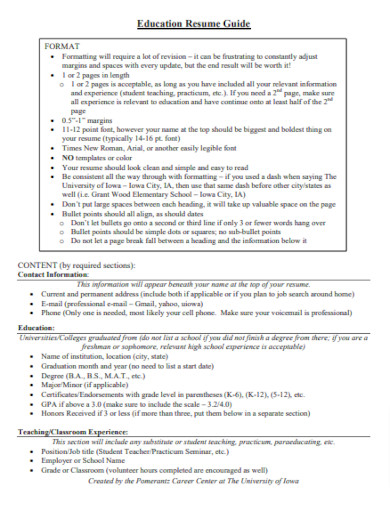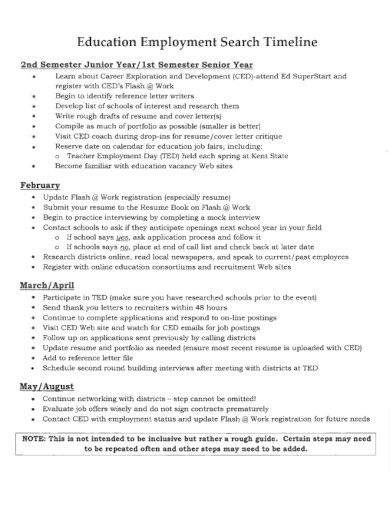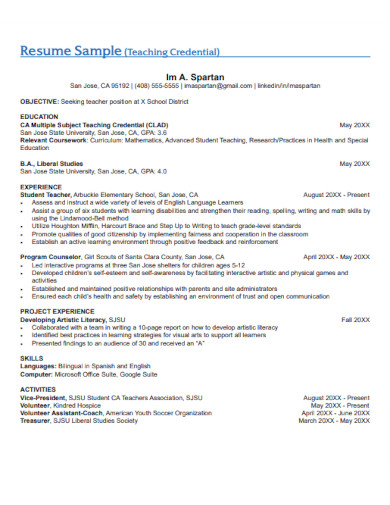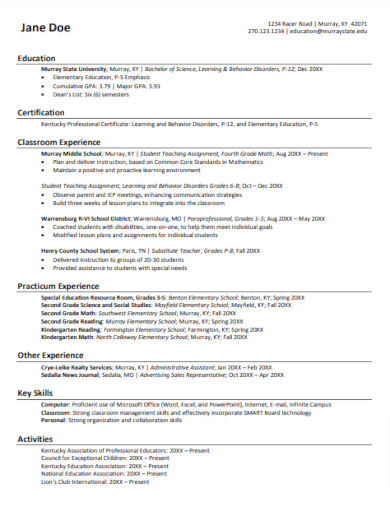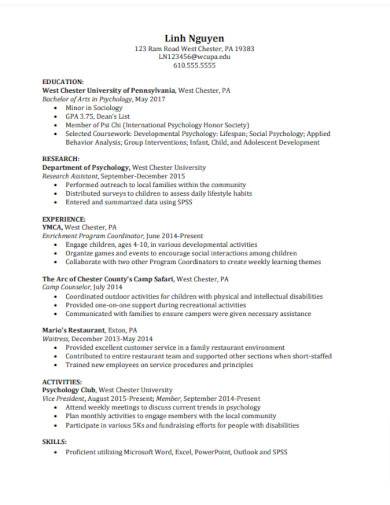16+ Education Resume Examples to Download
As an educator, you are committed to helping others achieve their academic and personal goals. But when it comes to crafting your own education resume, it can be challenging to showcase your own skills, work experience, and career goals. A professional resume can make all the difference in landing your dream job in education, and it all starts with choosing the best resume format and crafting a standout cover letter. In this guide, we’ll explore how to create a perfect resume that highlights your unique skills and qualifications and showcases your academic career development plan.
bb_toc content=”][/bb_toc]
Education Specialist Resume
Education Teacher Resume
Education Officer Resume
Education Advocate Resume
Education Advisor Resume
Simple Education Resume
Basic Education Resume
Sample of an Education Resume
Editable Education Resume
Printable Educational Resume
Standard Educational Resume
Sample Resume Education
Education Resume Guide
Modern Education Resume
Creative Education Resume
Education Resume Example
Education Human Services Resume
What is an Education Resume?
An education resume is a document that summarizes your work experience, skills, and academic career plan. It’s designed to showcase your qualifications and achievements and demonstrate why you are the perfect candidate for a job in the education sector. The best resume format for an education resume will depend on your individual strengths and career goals, but should always be professional, concise, and easy to read. A well-crafted education resume should also be accompanied by a cover letter that highlights your interest in the position and explains how your skills and experience align with the job requirements. By creating a perfect resume and cover letter before you email it to the hiring manager, you’ll increase your chances of landing your dream job and advancing your career in education.
How to create and Education Resume
Creating an education resume can be a daunting task, but by following these steps, you can create a professional and effective resume that showcases your skills and experience in the education sector.
Step 1: Choose the right format
There are different formats you can choose from, such as chronological, functional, or combination. Decide which format is best suited for your skills and experience. In most cases, a chronological format is the most common for education resumes, as it highlights your work experience in a clear and concise manner.
Step 2: Write your contact information
Include your full name, address, phone number, and email address. Make sure your email address is professional and avoid using email addresses that are unprofessional or inappropriate.
Step 3: Write your professional summary or objective statement
A professional summary or objective statement is a brief paragraph that summarizes your experience and career goals. This should be tailored to the specific job you are applying for and highlight your unique skills and qualifications.
Step 4: List your work experience
List your work experience in reverse chronological order, starting with your most recent job. Include the name of the school or organization, your job title, the dates of employment, and a brief description of your responsibilities and achievements.
Step 5: List your education and certifications
Include your degree(s), the name of the institution, and the dates of attendance. List any certifications or licenses you hold that are relevant to the job you are applying for.
Step 6: Highlight your skills
List your skills, including both hard and soft skills. Hard skills include technical skills, such as proficiency in specific software or programs. Soft skills include interpersonal skills, such as communication and teamwork.
Step 7: Add a section for additional experience or activities
Include any relevant volunteer work, internships, or extracurricular activities that demonstrate your skills and experience.
Step 8: Include a cover letter
A cover letter introduces yourself and explains why you are the perfect candidate for the job. Customize your cover letter for each job application, and make sure to highlight your skills and experience that are relevant to the position.
FAQs
Should I include my GPA on my education resume?
It depends on your GPA and the job you’re applying for. If your GPA is high (3.5 or above) and you’re applying for a job in academia or a related field, it may be relevant to include. Otherwise, it may not be necessary.
How do I showcase my teaching experience on my education resume?
Be sure to include details about your teaching experience, such as the courses you taught, the age group of your students, and any special projects or initiatives you led. If you have any student evaluations or feedback, you can also include those.
What should I emphasize in my education resume if I am a new teacher with little experience?
If you are a new teacher with little experience, emphasize your education credentials and any relevant coursework or student teaching experience. Highlight any volunteer work or extracurricular activities that demonstrate your passion for teaching and working with students.
A well-crafted education resume can open doors to countless opportunities in the field of education. Whether you’re a seasoned educator or just starting out, your resume can be a powerful tool for showcasing your skills, experience, and passion for teaching. By highlighting your achievements and qualifications, you can demonstrate your potential to make a positive impact on students’ lives and contribute to the growth of educational institutions. So, take the time to craft a polished education resume that reflects your unique strengths and qualities, and get ready to embark on an exciting career journey in the world of education.


